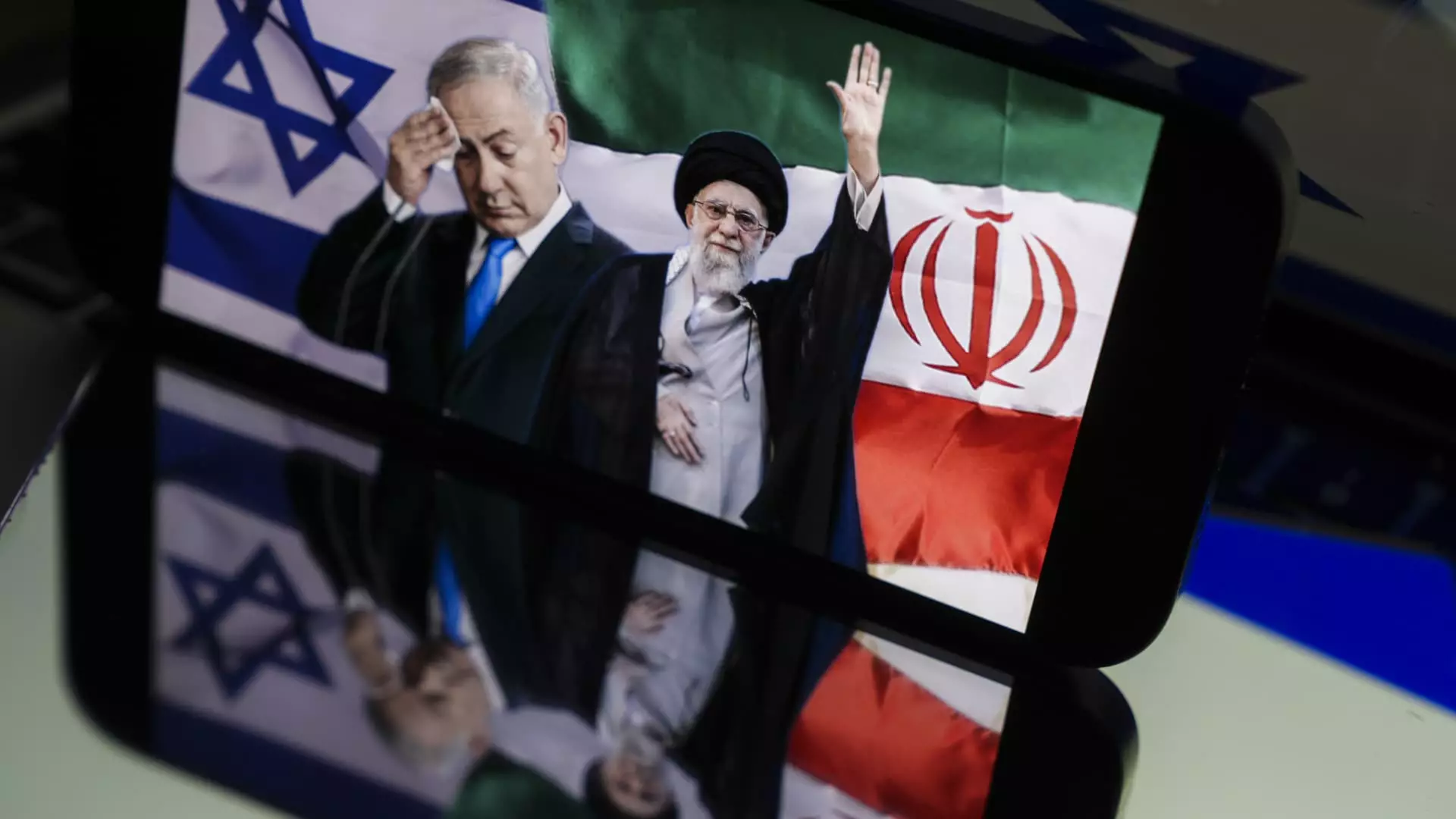The global oil landscape is increasingly shaped by geopolitical turmoil, revealing a precarious dependence on stability in regions riddled with conflict. Iran, as a pivotal player within OPEC and a nation whose energy exports significantly influence world markets, exemplifies this fragility. The recent clashes with Israel and subsequent US interventions underscore how intertwined security and energy supplies are—yet these events often prompt a dangerous game of brinkmanship. While some may see conflict as a necessary force for asserting sovereignty or defending a nation’s interests, the broader consequence is a market reeking with uncertainty, volatility, and vulnerability. Oil prices, which surge in times of conflict, are not merely economic indicators—they are signals of geopolitical instability that threaten the global economy’s delicate fabric.
The recent flare-up between Iran and Israel, coupled with subsequent US strikes on Iranian nuclear sites, highlights the perilous nature of relying heavily on regions fraught with tension. Not only do these confrontations threaten regional stability, but they also threaten to disrupt the core of global energy supplies. The fact that Iran, the third-largest OPEC producer, holds such sway over a vital commodity demonstrates just how precariously the international community’s reliance on peace and predictability has been balanced. Market reactions—price spikes followed by cautious retreat—are manifestations of our collective hope that diplomatic channels will prevent a full-blown crisis. Yet, beneath these fluctuations lies an ominous truth: the risk of escalation remains as persistent as ever.
Geopolitical Risks and the False Promise of Stability
The story of Iran’s energy politics is not just about supply and demand; it is deeply entangled with the broader geopolitical chessboard. U.S. sanctions, aimed at pressuring Iran regarding its nuclear ambitions, have crippled its ability to export oil freely, forcing the regime into covert operations and shadow fleets to circumvent restrictions. This clandestine activity introduces an unpredictable element into the markets—what experts call a “Black Swan”—capable of upending even the most carefully calibrated expectations. The volatility stems not solely from physical conflict but also from the uncertainty of political intentions, the future of Iran’s nuclear deal, and international responses.
A more insidious risk lies in the tendency of global powers to oscillate between confrontation and negotiation, often leaving long-term planning in limbo. The fluctuating policies and sanctions are symptomatic of a broader failure to establish a cohesive, diplomatic framework capable of integrating Iran into the global energy economy safely. Instead, every escalation—be it missile strikes, nuclear standoffs, or diplomatic stalemates—pushes the market further into chaos. It feels increasingly like waiting for the next crisis rather than moving toward stability, with countries like Iran prepared to test the boundaries whenever opportunity strikes.
The Illusion of Control and the Future of Energy Politics
Despite attempts by nations to regulate and stabilize energy markets through cooperation within OPEC and global diplomacy, the reality remains that geopolitical conflicts are an immutable risk factor. While some leaders advocate for principled stances against war, these declarations often ring hollow in the face of national interests and regional allegiances. The underlying truth is that energy resources have become entangled with national identities, security calculations, and foreign policies—making the idea of a conflict-free global energy future an idealistic veneer over a complex, unstable reality.
The reliance on diplomacy and sanctions as tools to manage Iran’s nuclear ambitions does little to address the root causes of regional tensions. Instead, these measures often deepen mistrust, encourage clandestine operations, and perpetuate the cycle of crisis. The potential for Iran to either pursue nuclear weapons or refuse negotiations entirely would dramatically escalate risks—not just for Middle Eastern stability, but for the entire global economy. In this environment, the pursuit of short-term market stability becomes a game of near-insanity, where the only certainty is the unpredictability of future shocks.
The current geopolitical climate reveals a fundamental flaw: our global energy architecture is dangerously dependent on fragile negotiations, unpredictable state actors, and volatile conflicts. While it’s tempting to cling to the hope that diplomacy can ultimately bring order, the reality is far grimmer. As long as regional actors view energy resources as pawns in broader geopolitical contests, the specter of disruption will linger. Any serious attempt to address these challenges must include diversified energy strategies and a reimagining of international cooperation—if stability is to become more than just an illusion in an era of perpetual conflict.


Leave a Reply